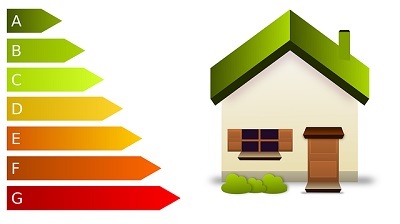
Ways to improve your Energy Performance Rating (EPC)
 Last year we wrote about the introduction of new legal Energy Performance Certificate (EPC) efficiency requirements for property owners and landlords in April 2018. These new regulations have gone a long way to help ensure that properties are up to standard when it comes to efficient energy usage.
Last year we wrote about the introduction of new legal Energy Performance Certificate (EPC) efficiency requirements for property owners and landlords in April 2018. These new regulations have gone a long way to help ensure that properties are up to standard when it comes to efficient energy usage.
For the majority of property owners there should be at least one way to invest and improve your energy performance even further, allowing you to make significant long-term savings in the future or to put your property in a better position from a marketing perspective when seeking a buyer or tenant.
What is an EPC and why is one required?
An EPC provides details on the energy performance of a property that is built, sold or rented in the UK. The energy performance relates to how much it will cost an occupier to heat and light the property, as well as indicating what the carbon emissions are likely to be. The EPC also highlights what things can be changed or implemented to help improve the EPC rating and reduce energy costs.
A valid in-date EPC must be in place before selling or renting out a property as all commercial media/marketing material produced should include the energy performance rating at a glance for any prospective property buyer or tenant.
How is a property rated for energy efficiency?
An accredited energy assessor will use the government’s Standard Assessment Procedure (SAP) to accurately assess and compare the energy and environmental performance of the building, resulting in a numerical score from 1-100 SAP points. This score is then converted into a band level, with level A being the most efficient through to level G being the least efficient. This rating is valid for 10 years from the date it was first issued and can be used to cover multiple tenancies within that time. There is no need to renew the EPC certificate until the 10 years expiry date approaches.
Should landlords aim for a minimum energy rating?
April 2018 saw the introduction of a minimum energy efficiency standard. This standard means that all properties must have a minimum level E efficiency rating ahead of all new and renewed tenancies. So, yes, landlords must aim for a minimum level E energy rating.
What can be done to improve the energy performance rating?
There are many things that can be done to improve the energy performance of a property - some require quite an investment whereas others are small changes and relatively inexpensive to carry out. As a collective, they can save the occupier significant sums of money in the long-term.
A few things that can help improve the energy performance rating of your property include:
- Upgrading your windows to double glazing
- Replacing halogen or incandescent lightbulbs with LEDs
- Add insulation to the walls and roof
- Consider renewable energy sources such as solar panels
- Consider smart heating controls
A more energy-efficient property is less costly to run, which can appeal to buyers or renters and potentially be the reason one property is chosen over another. This is why it makes sense for property owners and landlords to tackle what they can on their EPC’s suggested energy performance improvement list.
Do you have a property to let in Cardiff? If so, our expert team can help source the perfect tenants. We also offer a range of property management services to help take the stress of being a landlord away and leave you with peace of mind. Contact us today to learn more by calling 02920 668585, e-mailing enquiries@cpshomes.co.uk or by popping into one of our three Cardiff branches.
The information contained within this article was correct at the date of publishing and is not guaranteed to remain correct in the present day.


